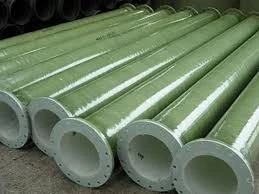
-
 Afrikaans
Afrikaans -
 Albanian
Albanian -
 Amharic
Amharic -
 Arabic
Arabic -
 Armenian
Armenian -
 Azerbaijani
Azerbaijani -
 Basque
Basque -
 Belarusian
Belarusian -
 Bengali
Bengali -
 Bosnian
Bosnian -
 Bulgarian
Bulgarian -
 Catalan
Catalan -
 Cebuano
Cebuano -
 China
China -
 China (Taiwan)
China (Taiwan) -
 Corsican
Corsican -
 Croatian
Croatian -
 Czech
Czech -
 Danish
Danish -
 Dutch
Dutch -
 English
English -
 Esperanto
Esperanto -
 Estonian
Estonian -
 Finnish
Finnish -
 French
French -
 Frisian
Frisian -
 Galician
Galician -
 Georgian
Georgian -
 German
German -
 Greek
Greek -
 Gujarati
Gujarati -
 Haitian Creole
Haitian Creole -
 hausa
hausa -
 hawaiian
hawaiian -
 Hebrew
Hebrew -
 Hindi
Hindi -
 Miao
Miao -
 Hungarian
Hungarian -
 Icelandic
Icelandic -
 igbo
igbo -
 Indonesian
Indonesian -
 irish
irish -
 Italian
Italian -
 Japanese
Japanese -
 Javanese
Javanese -
 Kannada
Kannada -
 kazakh
kazakh -
 Khmer
Khmer -
 Rwandese
Rwandese -
 Korean
Korean -
 Kurdish
Kurdish -
 Kyrgyz
Kyrgyz -
 Lao
Lao -
 Latin
Latin -
 Latvian
Latvian -
 Lithuanian
Lithuanian -
 Luxembourgish
Luxembourgish -
 Macedonian
Macedonian -
 Malgashi
Malgashi -
 Malay
Malay -
 Malayalam
Malayalam -
 Maltese
Maltese -
 Maori
Maori -
 Marathi
Marathi -
 Mongolian
Mongolian -
 Myanmar
Myanmar -
 Nepali
Nepali -
 Norwegian
Norwegian -
 Norwegian
Norwegian -
 Occitan
Occitan -
 Pashto
Pashto -
 Persian
Persian -
 Polish
Polish -
 Portuguese
Portuguese -
 Punjabi
Punjabi -
 Romanian
Romanian -
 Russian
Russian -
 Samoan
Samoan -
 Scottish Gaelic
Scottish Gaelic -
 Serbian
Serbian -
 Sesotho
Sesotho -
 Shona
Shona -
 Sindhi
Sindhi -
 Sinhala
Sinhala -
 Slovak
Slovak -
 Slovenian
Slovenian -
 Somali
Somali -
 Spanish
Spanish -
 Sundanese
Sundanese -
 Swahili
Swahili -
 Swedish
Swedish -
 Tagalog
Tagalog -
 Tajik
Tajik -
 Tamil
Tamil -
 Tatar
Tatar -
 Telugu
Telugu -
 Thai
Thai -
 Turkish
Turkish -
 Turkmen
Turkmen -
 Ukrainian
Ukrainian -
 Urdu
Urdu -
 Uighur
Uighur -
 Uzbek
Uzbek -
 Vietnamese
Vietnamese -
 Welsh
Welsh -
 Bantu
Bantu -
 Yiddish
Yiddish -
 Yoruba
Yoruba -
 Zulu
Zulu
fiberglass insulation tank
The Benefits of Fiberglass Insulation Tanks in Modern Construction and Industry
In recent years, the significance of energy efficiency and sustainable practices in construction and industry has grown dramatically. One innovative solution that has garnered attention is the use of fiberglass insulation tanks. These tanks not only serve as effective storage solutions but also contribute significantly to energy conservation. Understanding the benefits of fiberglass insulation tanks can help businesses and homeowners make informed decisions about their insulation needs.
Understanding Fiberglass Insulation
Fiberglass insulation is made from tiny glass fibers that are woven together to form a lightweight, durable material. This insulation is known for its excellent thermal resistance, making it ideal for various applications, including pipes, rooftops, and tanks. In the context of storage tanks, fiberglass insulation is applied to maintain temperature and reduce energy losses.
Enhancing Energy Efficiency
One of the primary advantages of fiberglass insulation tanks is their ability to enhance energy efficiency. In sectors such as food and beverage, pharmaceuticals, and chemical manufacturing, maintaining precise temperatures is crucial for product quality and safety. Insulated tanks prevent heat transfer, ensuring that liquids remain at the desired temperature while reducing the energy required for heating or cooling. This leads to lower operational costs and a reduced carbon footprint, which is increasingly important in today's environmentally conscious market.
Durability and Longevity
Fiberglass is naturally resistant to corrosive environments, making fiberglass insulation tanks a robust choice for industries that deal with harsh chemicals or varying temperatures. Unlike metal tanks, which can rust or corrode over time, fiberglass tanks maintain their integrity even in challenging conditions. This durability translates to longer service life and fewer replacements, contributing to overall cost savings for businesses.
fiberglass insulation tank

Lightweight and Easy to Install
Another significant advantage of fiberglass insulation tanks is their lightweight nature. Compared to traditional materials, such as steel or concrete, fiberglass is much easier to handle and install. This characteristic can reduce labor costs and installation time, making it an attractive option for construction and industrial applications. The ease of installation also mitigates the risk of workplace injuries that can occur with the handling of heavier materials.
Environmental Impact
The production and use of fiberglass insulation are generally more environmentally friendly compared to other materials. The manufacturing processes for fiberglass create less waste and emissions, and the material itself is recyclable. Companies looking to improve their sustainability practices can benefit from these eco-friendly properties, aligning their operations with green building standards and regulations.
Versatility of Applications
Fiberglass insulation tanks can be tailored for a variety of applications, including water storage, chemical processing, and food preservation. Their inherent flexibility allows for various designs and sizes, making them suitable for both small-scale and large-scale operations. This versatility means that industries across the board can find customized solutions that meet their specific needs.
Conclusion
In summary, fiberglass insulation tanks represent a significant advancement in both construction and industrial practices. With benefits ranging from enhanced energy efficiency and durability to environmental sustainability and ease of installation, these tanks are an excellent investment for businesses aiming to optimize their operations. As industries continue to shift towards more efficient and eco-friendly practices, the adoption of fiberglass insulation technology is likely to grow, establishing itself as a cornerstone in modern insulation solutions. Embracing this technology can provide a competitive advantage while supporting global efforts toward sustainability.
Latest news
-
Exploring the Benefits of Top Hammer Drifter Rods for Enhanced Drilling PerformanceNewsJun.10,2025
-
High-Precision Fiberglass Winding Machine for GRP/FRP Pipe Production – Reliable & Efficient SolutionsNewsJun.10,2025
-
FRP Pipes & Fittings for Shipbuilding - Corrosion-Resistant & LightweightNewsJun.09,2025
-
Premium FRP Flooring Solutions Durable & Slip-ResistantNewsJun.09,2025
-
Premium Fiberglass Rectangular Tanks Durable & Lightweight SolutionNewsJun.09,2025
-
Tapered Drill String Design Guide Durable Performance & UsesNewsJun.09,2025









